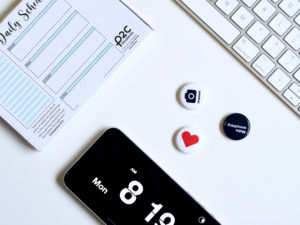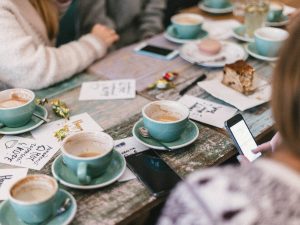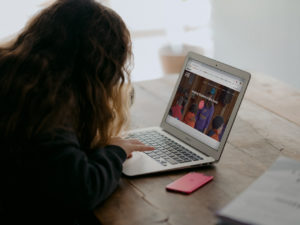Think back to a week in your life before you were asked to start practising physical distancing and isolation.
Or maybe even just a day.
Were you busy and tired?
What was your physical, mental, and emotional health like?
Did you feel overwhelmed by work, school, church, ministry, family, and other responsibilities? Did you feel overcommitted?
Were you approaching a degree of “burn out”?
As someone who, at one time, was a university student, a leader in my campus ministry, a campus Bible study leader, a worship leader at church, a children’s church helper, a part time employee on campus, a daughter, a sister, a roommate, a friend… I can empathize.
Being all those things at once was exciting, important, and purposeful, but it was also overwhelming, tiring, and, in some ways, unhealthy. I related to those words “burnt out” without knowing what it really meant.
Looking back, I know that part of this unhealthy pace comes with the university student stage of life. You need to be a go-getter. You have a lot to figure out, a lot to impact, and are often just starting to understand and learn how to say no to things.
For me, learning this took many years of maturity. To experience the pain of too much work, getting married, learning what it means to prioritize my marriage, and then having a baby, to learn the beauty of slowing down and living simply. It came at the cost of many bumps, screwups, and failures amidst the beauty that is my family and life.
But you, my friend, have been given this extraordinary opportunity, called COVID-19, to learn this lesson before all the bumps, screw ups and failures (well, at least some of them), all while playing your part in serving our healthcare system and workers through your physical distancing and isolation.
Impressive!
I wonder, what does your week look like now? How have things changed?
I know for me, this forced simplicity and slowing down has been annoying, lonely, and worrisome at times, but it has also been enlightening and refreshing.
It has allowed for more opportunity for my family to just be together–to have fun, listen, be heard, love, and be loved. I’m finding myself so much more aware of my deep gratitude for the family that God has put me with. Not just my immediate family, but also those I’ve been connecting with so much through video calls.
This slow and simple life has given me:
Renewed authenticity and joy in my neighborly interactions. I see new opportunities to offer my neighbours some hope, love, and support in these times.
Genuine care for others. The friendly smiles that have begun to define our community have been beautiful to watch unfold as these days carry on. It’s a clear picture of the image of God that we all share.
An awe of nature. I’m so thankful that spring has arrived. I’m moving slowly and living simply enough to actually notice singing birds, the new buds forming on trees, and the first flowers of spring. Spring is all about life and hope emerging after the death and despair of winter. I’m reminded that winter doesn’t last forever, as life moves in cycles, and that this COVID-19 virus too shall pass.
This renewed gratitude has got me talking and listening to God a lot more than I was before this pandemic. There is just a natural flow of conversation filled with thank yous, praise, honesty, love, and wonderings. In having more time to read, I’ve also discovered liturgical prayers and writings that have helped me interact with God in really refreshing ways.
I want to share this morning liturgy called “A Liturgy for the Ritual of Morning Coffee” from the book Every Moment Holy, Volume 1:
Meet me, O Christ,
in this stillness of morning.
Move me, O Spirit,
to quiet my heart.
Mend me, O Father,
from yesterday’s harms.
From the discords of yesterday,
resurrect my peace.
From the discouragements of yesterday,
resurrect my hope.
From the weariness of yesterday,
resurrect my strength.
From the doubts of yesterday,
resurrect my faith.
From the wounds of yesterday,
resurrect my love.
Let me enter this new day,
aware of my need,
and awake.
To your grace,
O Lord.
Amen.
I realize that some of you may be struggling with this new homebody life, or even feeling lonely. It’s easy to get stuck on social media, Netflix, or other tempting distractions. That’s okay. There is still time to try something different. My friend Caroline wrote this awesome article called Rhythms to help in a season of interruption about how to give your day a bit of structure, with ways to block your time each day and incorporate hope-restoring things–like family, nature, and faith.
There is beauty, hope, and renewal found in the act of slowing down and living simply, but you may need to be open and make some changes to discover them in your own life.
Maybe now’s the time to reflect on your current daily life:
What has changed in ways that have been helpful, healthy, and good?
Ways that you never would have initiated yourself, but have been pleasantly surprised by?
Maybe something to keep changed even after this is over?
How is having and doing less been better than your regular way of life?
How could you implement these healthier rhythms into your life, even after this time of physical distancing?
"*" indicates required fields





